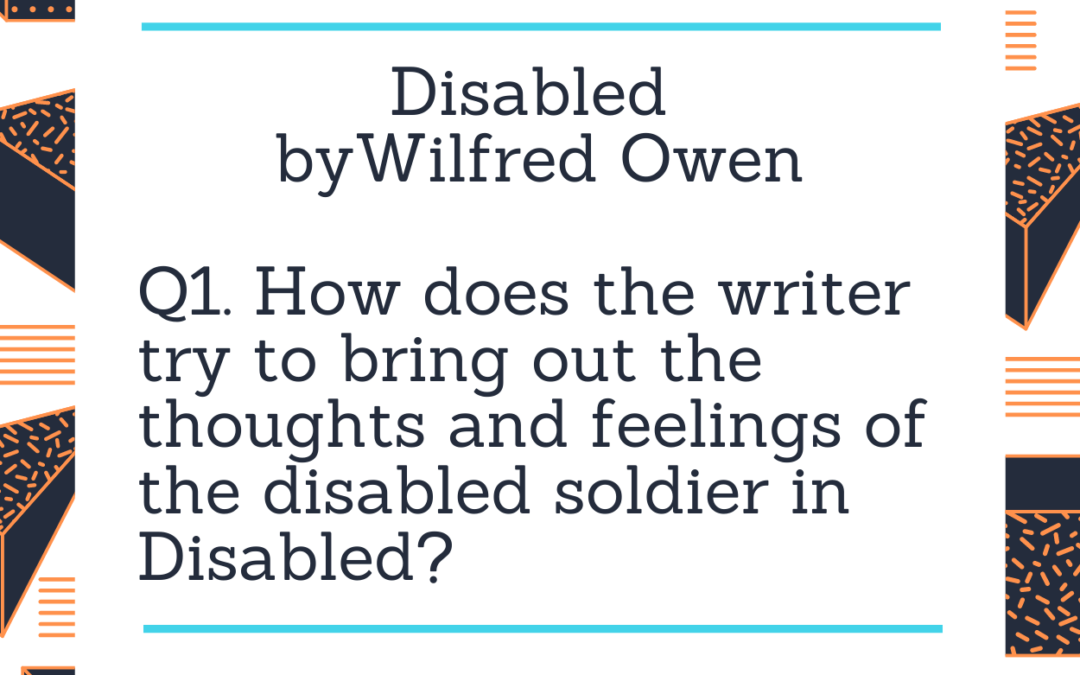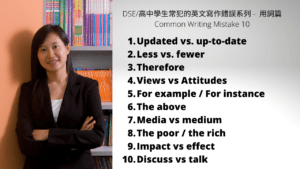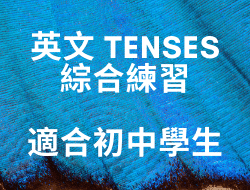Edexcel English IGCSE: Disabled by Wilfred Owen
Q1. How does the writer try to bring out the thoughts and feelings of the disabled soldier in Disabled?
In your answer, you should write about:
- the comparison between the soldier’s past and his present situation;
- his experiences with women;
- his reasons for becoming a soldier;
- any other interesting use of language.
You should refer closely to the poem to support your answer. You may use brief quotations.
Edexcel English IGCSE Model Essay by an Expert
In ‘Disabled’, the soldier reflects bitterly the changes in his life since the war: namely changes to his body and in his experiences with women. The devastating impact of the war is made more sad by the flippant reasons that he had for going to war.
The soldier reflects the differences between his past and his current situation. One of the most striking changes is his physical appearance: he lost his limbs in the war. To describe the injury, Owen uses the unusual phrase: “he threw away his knees”. This creates the impression that the injury was the soldier’s fault, as though he had deliberately got rid of his legs. This reflects the soldier’s feeling that his injury was pointless and wasteful. Owen also highlights the contrast in the soldier’s self-perceived age; although only a year has passed, he looked “younger than his youth” before, and “now, he is old”. The simple expression of the latter state reflects the soldier’s sense of finality and hopelessness for the future.
The soldier’s experiences with women has also changed for the worse. He reflects on his previous experiences: “girls glanced lovelier” and “how slim / Girls’ waists are, or how warm their subtle hands”. The alliteration, and the repetition of ‘l’ and ‘s’ sounds in these descriptions reflect the sensual nature of his memories. However, “Now, he will never feel again”; again, this creates a sense of hopelessness. In his current situation, women “touch him like some queer disease”. This simile shows that the he believes that women find him disgusting and strange. The medicalization of his body in this image probably reflects the fact that he is only touched by nurses for medical reasons, no longer for pleasure.
After portraying the soldier’s thoughts and feelings about his current state, Owen reveals to the reader the superficial and flippant reasons that the soldier had for ‘joining up’. Rather than wanting to fight for his country and freedom, he “thought he’d better join”, suggesting a sense of obligation. The colloquial language in this line suggests that it was not a serious decision. When describing his feelings at joining the army, the soldier emphasises the romantic and attractive side of war, with a focus on superficial appearances: “jewelled hilts”, “daggers in plaid socks” and “smart salutes”. This naivety is all the more poignant now because we are now aware of the great losses that he has suffered as a result of his foolish decision.
When the soldier signed up to join the war, he could never have imagined the terrible implications of his decision. Through the soldier’s regretful and bitter thoughts and feelings, Owen portrays the loss of a generation’s youth, innocence and future.



